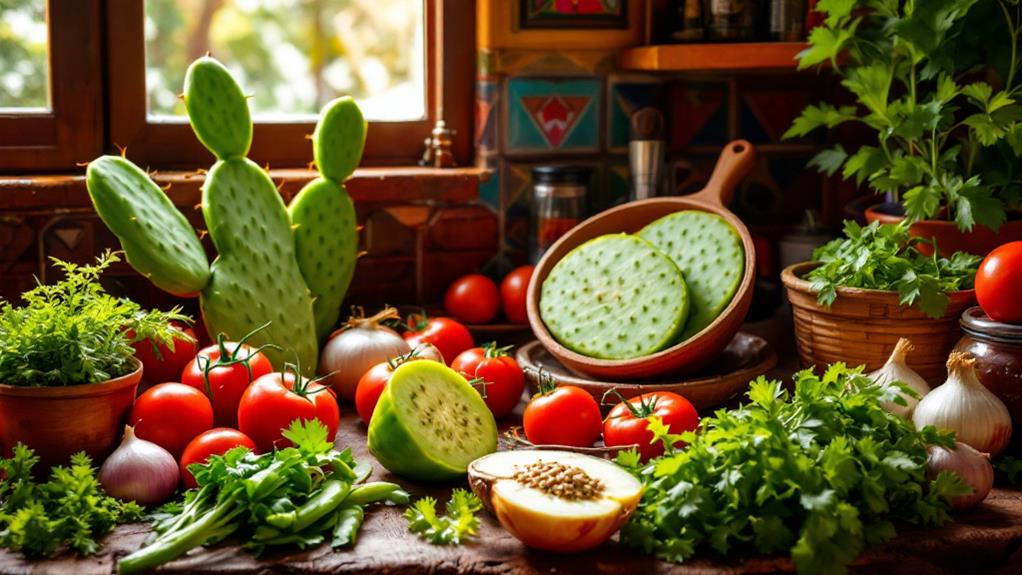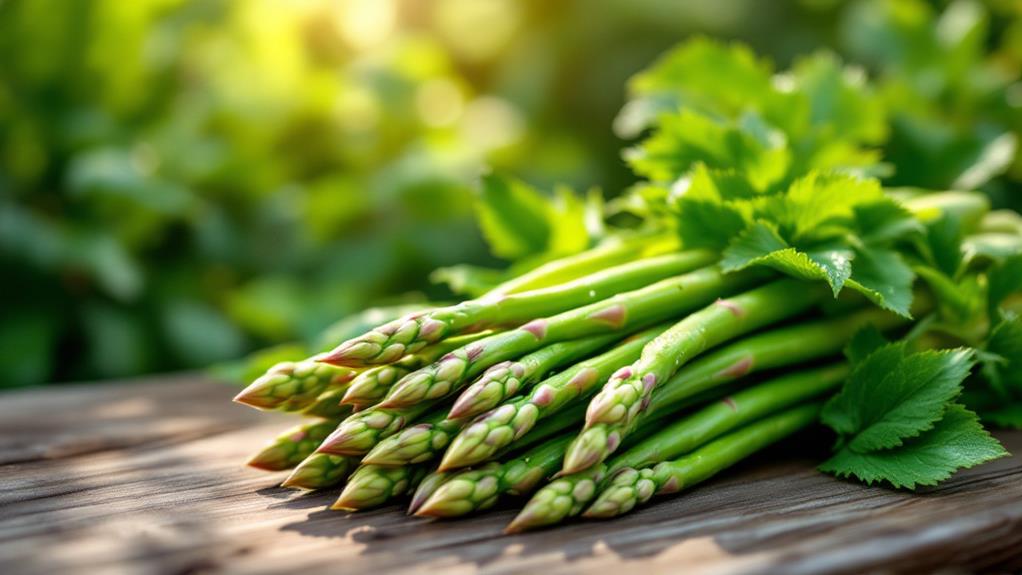A Comprehensive Guide to the Types and Benefits of Pumpkin

You'll find pumpkins come in a variety of types like jack-o-lanterns for carving, sweet pie pumpkins for baking, and edible miniatures perfect for roasting. They're not just versatile; pumpkins are nutrition powerhouses too. They're low in calories and packed with beta-carotene, fiber, and potassium, benefiting your eyes, heart, and digestion. Their antioxidants can even support skin health and fight signs of aging. In cooking, they're versatile, enhancing everything from stews to desserts. Just remember to choose fresh options for less sugar. Investigate further to uncover the specific ways pumpkins can enrich your lifestyle.
Pumpkin Varieties
When exploring pumpkin varieties, you'll often find that each type has its unique characteristics and uses. Jack-o-lantern pumpkins are the quintessential Halloween choice, mainly grown for carving. While they can be used in cooking, their flavor is milder compared to other varieties. Pie pumpkins, or sugar pumpkins, are perfect for baking and cooking due to their smaller size, sweeter taste, and denser flesh, making them a favorite for pies and desserts.
Miniature pumpkins, often seen adorning centerpieces, are not just decorative but also edible. You can roast or stuff them for delicious culinary purposes. White pumpkins add a unique twist to recipes with their slightly different flavor, proving that they're more than just a pretty decoration. These can be cooked just like their orange counterparts.
Giant pumpkins, although primarily grown for competitions, have flesh that is technically edible. While they might not win any flavor contests, you can still use them in recipes if you're curious. Each of these pumpkin varieties offers something different, regardless of whether you're aiming to create a stunning dish or simply enjoy their aesthetic appeal.
Nutritional Profile
As you investigate the nutritional profile of pumpkins, you'll find they're a powerhouse of important nutrients packed into a low-calorie package. With just 49 calories per cup of cooked pumpkin, it's an excellent choice for those mindful of their caloric intake. Pumpkin is composed of 94% water, making it hydrating and invigorating. One standout component is beta-carotene, which converts to vitamin A in your body. Even half a cup of pumpkin delivers over 200% of your daily vitamin A needs, indispensable for maintaining healthy vision and improving your immune function.
Pumpkins are also rich in dietary fiber, providing nearly 3 grams per cup of cooked pumpkin and more than 7 grams in canned varieties. This fiber contributes to better digestion and helps you feel fuller longer. Furthermore, pumpkins are loaded with potassium—16% of your daily recommended intake—which is crucial for heart health and muscle function. Vitamins A and C further augment the nutritional profile, alongside other nutrients like copper, manganese, vitamin B2, vitamin E, and iron. This nutrient density makes pumpkin a versatile enhancement to any diet, supporting numerous bodily functions with its array of vitamins and minerals.
Health Benefits

Understanding the nutritional powerhouse that is pumpkin sets the stage for exploring its impressive health benefits. Packed with vitamin A, pumpkin is a champion for your eye health and immune system. Just half a cup gives you over 200% of your daily vitamin A needs. Plus, its high fiber content, with nearly 3 grams per cup of cooked pumpkin and over 7 grams in canned pumpkin, is a boon for your digestive health. Fiber not only keeps things moving smoothly but also helps you feel full, aiding in weight management.
Pumpkin's heart health benefits are notable, too. With high levels of potassium and vitamin C, it helps regulate blood pressure and supports comprehensive cardiovascular function. Antioxidants like alpha-carotene and beta-cryptoxanthin in pumpkin combat oxidative stress, potentially reducing the risk of chronic diseases and lowering cancer risk. These antioxidants work to defend your body from harmful free radicals.
Furthermore, regular consumption of pumpkin is linked to improved skin health, thanks to its vitamin A content. While we'll explore more about skin and anti-aging benefits later, it's clear pumpkin offers a wealth of health advantages, making it a valuable enhancement to your diet.
Skin and Anti-Aging
Pumpkin often shines as a natural ally in your skin and anti-aging regimen. Thanks to its richness in beta-carotene, pumpkin helps reduce inflammation and offers a degree of natural sun protection, which may lower the risk of skin cancer. This lively fruit is also packed with antioxidants, including vitamins A, C, and E, which are essential in supporting skin health. These antioxidants combat oxidative stress, helping to prevent premature aging and keeping your skin looking youthful.
The nutrients in pumpkin, particularly vitamin A and zinc, play a role in maintaining a healthy intestinal barrier. This, in turn, influences skin health by reducing irritation and promoting a clear complexion. Additionally, pumpkin extract has shown potential in treating conditions like contact dermatitis, although more research is needed to fully understand these benefits.
If you're dealing with eczema, pumpkin oil can be a soothing remedy. Its moisturizing properties help alleviate dryness and itchiness, possibly reducing the need for steroid treatments. By incorporating pumpkin into your skincare routine, you're harnessing a natural powerhouse that can improve your skin's health and combat the signs of aging effectively.
Culinary Uses

Beyond its skin benefits, pumpkin shines in the culinary world with its versatility. You can incorporate this nutrient-rich vegetable into a wide range of dishes. Roasting pumpkin amplifies its natural sweetness and increases the nutritional value of savory dishes like soups and stews. The rich flavor of pumpkin puree effortlessly raises your meals, making it a favorite for fall-inspired creations.
Canned pumpkin is a kitchen staple, offering nearly 7 grams of fiber per cup. It's a convenient way to add pumpkin to your recipes all year round. Use it as a natural sweetener and moisture enhancer in baked goods such as muffins and pancakes, providing a healthier alternative to butter or oil. Your baked treats will not only taste delicious but also be more nutritious.
Don't forget about pumpkin seeds, which make for a nutritious snack. Roasted pumpkin seeds are packed with healthy fats and protein, perfect for snacking or adding to salads and trail mixes. They add a satisfying crunch and a dose of nutrition.
Seasonal recipes often highlight pumpkin's versatility, from pumpkin spice lattes to savory pumpkin mac and cheese, allowing you to celebrate its flavor and nutritional benefits throughout the year.
Consumption Considerations
When incorporating pumpkin into your diet, choose fresh over canned varieties to sidestep added sugars and sodium, making it a healthier option. Fresh pumpkin offers numerous health benefits, packed with fat-soluble vitamins like A and E. To improve the absorption of these nutrients, pair pumpkin with healthy fats such as olive oil or nuts. However, be cautious with pumpkin pie mix, as it often contains high levels of added sugars that can negate the fruit's health benefits.
Moderation is crucial, especially for individuals with kidney issues. Pumpkin is a rich source of potassium, and excessive potassium intake can lead to hyperkalemia, a condition marked by nausea and muscle weakness. If you have kidney concerns, consult with a healthcare professional before increasing your pumpkin consumption.
Consider these significant points:
- Fresh pumpkin: Prioritize it for fewer added sugars and sodium.
- Pumpkin pie mix: Avoid due to high added sugar content.
- Potassium intake: Monitor if you have kidney issues.




